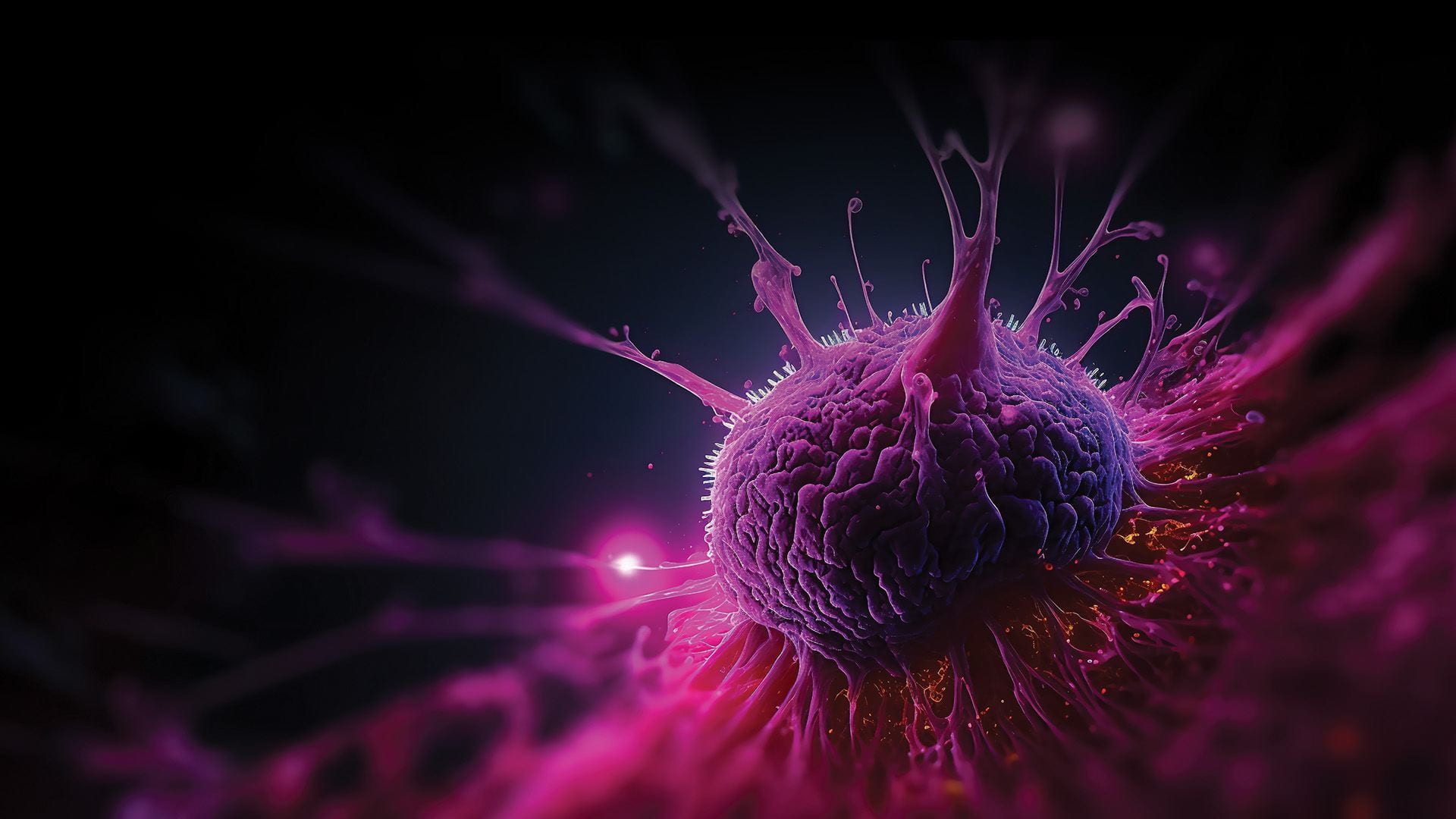
Check Up: Targeting Cancer with Advanced Germline Testing
Vol. XXII, No. 1, 2024

Dr. Nada Assaf
In December 2022, the first patients were tested in-house at AUBMC’s Medical Genetics Division for a pioneering laboratory test: onco- genetic germline testing. This procedure uses next generation sequencing technology to search for harmful genetic changes that predispose patients to a higher risk of certain types of cancers. “We sequence more than 100 genes that are known to be cancer-related,” says division head Dr. Nada Assaf.
“Germline testing” refers to a type of genetic testing that looks for mutations that may have been inherited from either parent and can be passed on to one’s children. This type of testing is important for patients diagnosed with cancer—as it can inform treatment decisions such as therapy and surgery—as well as for people with a strong family history of cancer to determine their own risk for developing certain types of cancer. “The determination of cancer risks in candidate families can save lives. Prevention and early detection have been proven to dramatically increase cancer survival rates,” Dr. Assaf says.
Previously, it was generally accepted that only five percent of cancers were hereditary, but with advanced technologies like germline testing and the ongoing discovery of new cancer-related genes, that percentage is closer to 10 today. This is a tremendous increase and means that germline testing has the capability to save many lives by alerting patients and close family members to their risk of developing cancer and initiate adequate prevention strategies.
Before the test is performed, the patient consults with a genetic counselor. The counselor determines if the patient would benefit from germline testing and explains the purpose and implications of the test. Patients may become candidates for surveillance by laboratory/radiology tests or risk-reductive surgeries. A patient’s parents, siblings, and children may also become candidates for testing or surveillance. This adds a major psychological dimension. By presenting comprehensive information about testing and its results, genetic counseling helps decrease the potential anxiety triggered by genetic testing results. During genetic counseling, patients also can have their questions answered by a medical professional.
To perform the test, DNA is extracted from the patient in the form of a blood sample or a cheek swab and is run through the sequencer, which is owned in-house. “The fact that medical genetic testing is performed in-house is critical because it allows us to build our own genetic database as it relates to cancers, which is scarce in the region,” explains Dr. Assaf. Each population has its own “hotspots” where genetic changes are likely to be located. This means that they might not be the same for Middle Eastern populations. Thus, it is important to populate databases in regions outside the Global North to help gain an understanding of the significance of those changes and elucidate the particularities of hereditary cancer in our region.
Additionally, germline testing can inform the best preventive and therapeutic treatment regimens.
“If we know that a certain genetic defect is involved, we can deploy adequate targeted therapies. It can also inform surgery options such as bilateral mastectomy for breast cancer risk reduction, just like Angelina Jolie opted for when she was found to have a defect in the BRCA1 gene, which she had inherited from her mother who died at the age of 56 from ovarian cancer. This gave her a high probability to develop breast and ovarian cancer,” says Dr. Assaf. “The point is, when it comes to cancer, the earlier you prevent and detect it, the better.”
The Medical Genetics Division is part of the Molecular Diagnostics Section at AUBMC’s Department of Pathology and Laboratory Medicine. It is the first of its kind in the MENA region and offers access to the most advanced medical technology. This is yet another way that AUBMC is pioneering healthcare in the region and offering world-class, patient- centered care to the people it serves.